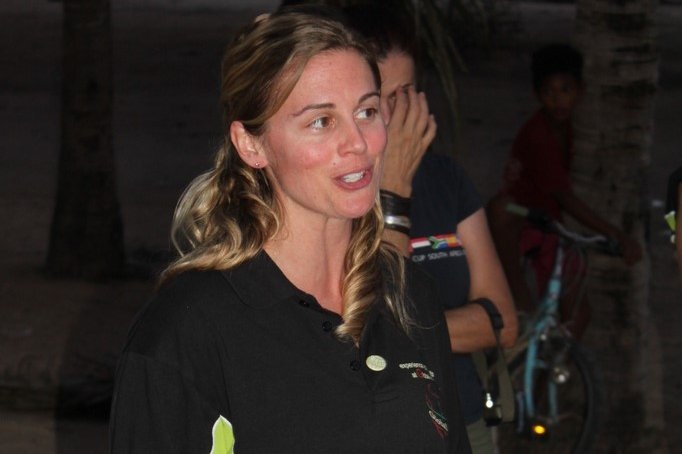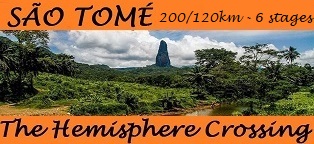June 2016 - Amy Sue Biondich (USA) - Medical Director
Amy Biondich has been our medical director for two of our races and she has been in our races for 5 times. She is currently living in Orlando, Florida, USA.
1. Can you tell us about yourself?
I am a small town girl from Wisconsin in the USA. After medical school, I decided on an Emergency Medicine specialty since I love high paced medicine and lots of action. After working in both inner-city and rural ER's for a year, I decided to pursue my dream of becoming a Wilderness and Expedition Medicine doctor. Through this fellowship training, I was introduced to Global Limits races. I fell in love with the travel to exotic and beautiful places, as well as the opportunity to take care of runners from all over the world. After having some of my research published, being on the medical team for numerous single and multi-day races, and acting as a physician for a mountaineering school, I completed my fellowship training in December 2015. I have since started my own expedition medicine based company, continue to work as a race physician, and also work part-time in Emergency Departments across America.
2. Which one is your favorite GlobalLimits race? Why?
This is a tough question to answer as each race has something special about it in terms of culture and beautiful locations. But the race closest to my heart would have to be Cambodia. It was my first race as a wilderness physician so I definitely had to learn a lot quickly both before and during the race. This race inspired one of my research projects on exercise-associated gastroparesis, more commonly known as "slosh stomach" in the racing community. Cambodia is such a beautiful country with such gracious and friendly people. The camps that we stay at throughout the race are awe-inspiring with a great variety of staying in villages, in actual temples, and next to a beautiful waterfall. I see myself going back to this race again and again.
3. What are the main challenges of a race medical in a stage race?
Being a race medical is as challenging as it is rewarding. One of the things that maybe people don't realize (and even I didn't realize before my first race!) is that as the medical you have to have a reasonably high level of fitness. Oftentimes the race course is not accessible by vehicle which means that the docs are out walking the course along with the runners with a heavy medical kit on their back. And then after the hiking is done, is when our real work begins in terms of taking care of any racers that may have had a rough day. We got a lot of common ailments such as foot issues and musculoskeletal pain, but you always have to be thinking about more serious issues such as hyponatremia. Most runners can get through a single day of hard running, but medical issues tend to start to pile up when our runners are doing tough distances several days in a row. It is always a challenge to make sure that we are teaching preventive care as well as actually treating any issues that come up so that we can help each and every racer be successful.
4. Any interesting observations from our runners?
It is always such a pleasure to get to know the runners throughout the course of a weeklong race. They definitely teach us as much as we try to teach them! One of the most important things that I have observed in runners as well as having them actually tell me about it, is the importance of mental toughness. It seems that if a runner makes their mind up to finish the race, no matter what physical ailments may come their way, they will finish! The mental aspect of racing is incredibly important.
5. Advice to runners?
My advice to runners would be to enjoy the experience! Remember that you signed up to do this race in order to test your limits and see what your body is capable of. Some of the things that you can do in order to enjoy the experience is to: be sure to appropriately train before the race, test out your nutritional and supplement plan well before race time and then stick with it during race week, also test out your running gear - you would be surprised at the number of athletes that we see with horrible blisters or chafing throughout the race, read about the area where the race is being held to help enhance your enjoyment of the special locales where Global Limits races are held, and practice visualization techniques or other mental strategies before the race to help build up that mental toughness that is so important, and finally - smile! even when it hurts…..




